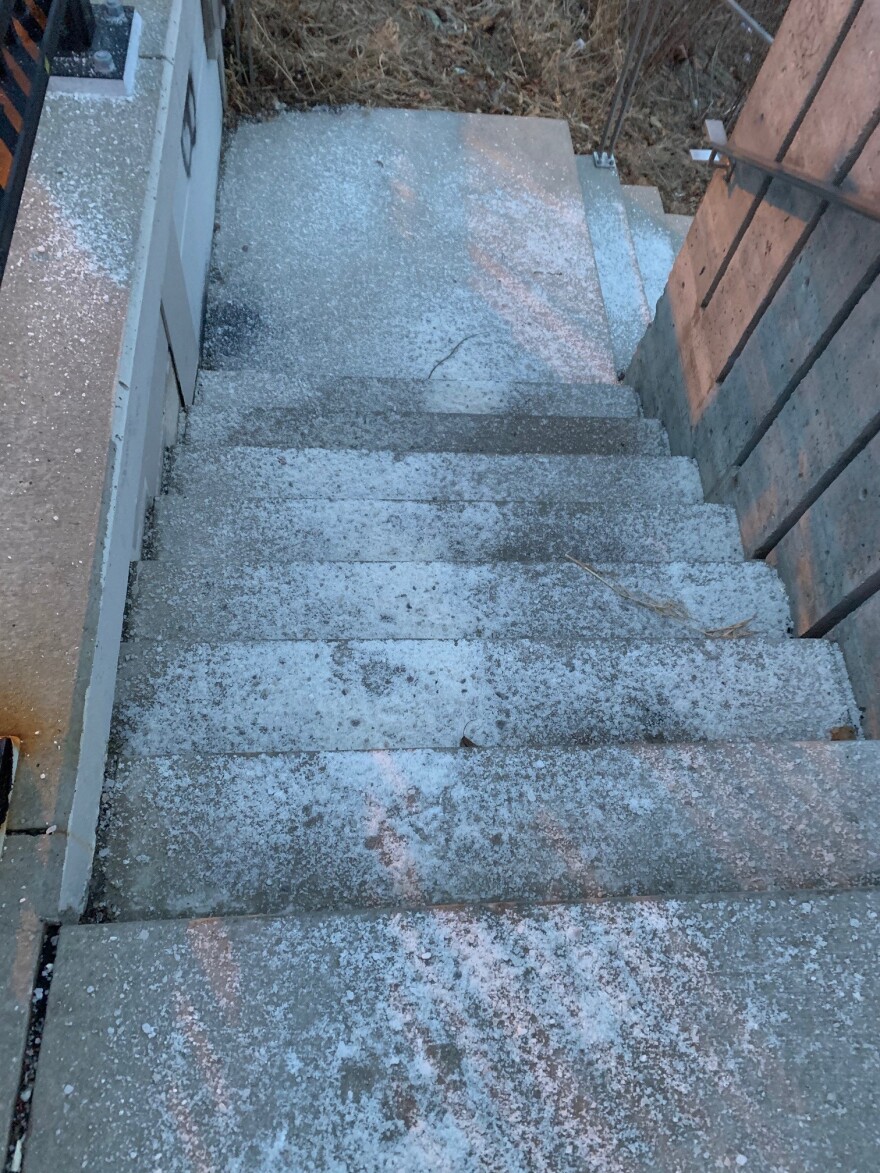We’re seeing wintery snowy weather. That means crews are applying lots of road salt to keep our roadways clear, but a lot of that salt runs off into lakes and streams. What are the environmental impacts of road salt?
Cheryl Nenn with Milwaukee Riverkeeper looks down a storm sewer doing its job this week between snowstorms.
"This is all of our recent snow and ice melting into the storm sewer and along with that is a lot of road salt that’s been applied over the last couple days," Nenn says.
We’re steps away from the Milwaukee River on its path through downtown Milwaukee where it meets the Kinnickinnic and Menomonee — they blend and flow into Lake Michigan.
Nenn says chloride, in its road salt form, is very good at clearing our snowy roads.
"All of those big interstates that are so snow-free instantly — it seems like they do a good job deicing quickly so we can all get where we need to go, but all of that salt is running off and a lot of it is running off into the water," Nenn says.
What happens to the chloride when it meets the Milwaukee and other rivers?
"A lot of that stays in the river system and quite a lot of it will settle out into the bottom of the river," Nenn says.
Chloride is a pollutant that’s not good for the health of fish and other aquatic life.
"We are starting to see some concerning trends. One is in the summer months — this year would be a good example — we didn’t have as much rainfall so a lot of the rivers got very, very low this summer. So that salt that’s sitting at the bottom of the river becomes more concentrated ... and we have seen a few pretty high spikes," Nenn explains.
Those acute conditions are toxic for fish and other aquatic life.

Milwaukee Riverkeeper encourages strategies that reduce salt applications.

"And that also is like a huge cost savings by just trying to use the right product a the right time and the right quantity," Nenn says.
She says sometimes, homeowners help. "A resident called me last year and said there was so much salt in front of his house, he filled two giant garbage cans of it and there was still a lot left. There was some sort of mishap with the truck and we were able to call the city and they came out and cleaned it up right away," Nenn says.
According to the Milwaukee Department of Public Works’ website, the city tries “to use only the amount of salt needed to get the job done.” The city adjusts application rates “based on current forecasts and conditions.”
Cheryl Nenn says we all have to do better. "It would be really wonderful if everyone could to something and just be a little more mindful. One of the things is really getting out there and shoveling early and often," she says.
Milwaukee Riverkeeper has more road salt tips on its website.
Wisconsin Salt Wise is hosting daily livestreams for Winter Salt Awareness Week on Jan. 22-26 from 12:30 - 1:00 p.m. Click here for more information.
_






